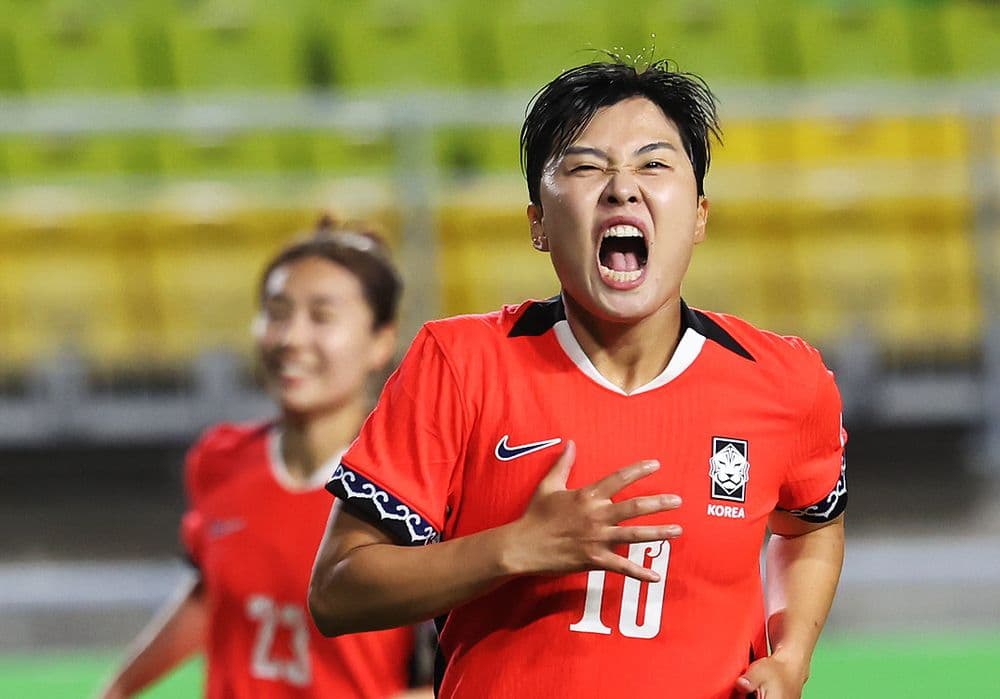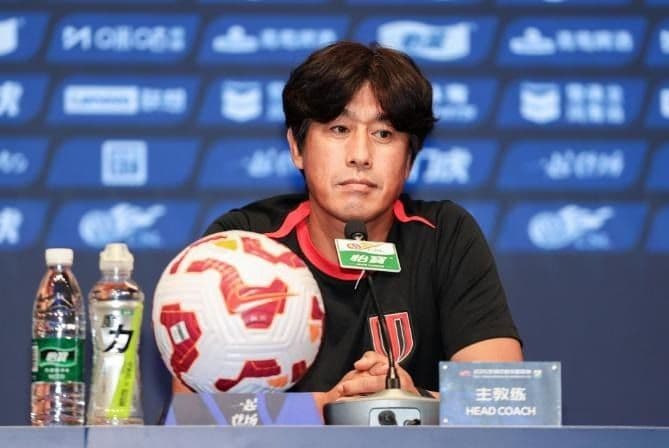From 20-Year Veteran Ji So-yeon to '07-Born Casey: Korea Women's Soccer Triumphs in Historic East Asian Cup Victory

The Historic Moment: Korea's 20-Year Wait Finally Ends
Did you know that Korean women's soccer hadn't won the East Asian Cup for two decades? On July 16, 2025, at Suwon World Cup Stadium, that drought finally came to an end in the most dramatic fashion possible. The Korean women's national team, led by coach Shin Sang-woo, defeated Taiwan 2-0 in their final match of the 2025 EAFF E-1 Championship, securing their first East Asian Cup title since 2005. What made this victory even more remarkable was that Korea entered the tournament as underdogs, ranked 21st in FIFA rankings, behind powerhouses Japan (7th) and China (17th). The championship was decided not just by Korea's victory over Taiwan, but by a crucial 0-0 draw between Japan and China in the concurrent match. With all three teams finishing on 5 points (1 win, 2 draws), Korea clinched the title through superior goal difference in head-to-head matches, having scored 3 goals compared to China's 2 and Japan's 1. This mathematical miracle perfectly encapsulated the dramatic nature of Korean soccer, where the unexpected often becomes reality.
The Legend's Final Dance: Ji So-yeon's Crowning Achievement

At 34 years old, Ji So-yeon has become the living embodiment of Korean women's soccer history. Having made her A-match debut in 2006, she has witnessed nearly two decades of ups and downs in the national team. This East Asian Cup victory was particularly sweet for the veteran midfielder, as it marked her first major tournament triumph after years of near-misses, including a heartbreaking 3-2 loss to China in the 2022 Asian Cup final. In the decisive match against Taiwan, Ji So-yeon stepped up when it mattered most, coolly converting a penalty kick in the 70th minute to open the scoring. Her 169th international appearance resulted in her 74th goal for the national team, further cementing her status as Korea's all-time leading scorer. After the match, an emotional Ji So-yeon reflected on the long journey: "It took so long. It took so long to win. It took 20 years. I am so happy. I feel like we endured this for so long to win at home". For international fans unfamiliar with Korean soccer culture, Ji So-yeon represents more than just statistics – she embodies the resilience and determination that defines Korean sports mentality, often called 'nunchi' (emotional intelligence) and 'jeong-shin-ryeok' (mental strength).
Coach Shin Sang-woo's Bold Generational Revolution
When Shin Sang-woo took over as head coach in October 2024, he inherited a team in transition and immediately declared his intention to implement sweeping generational changes. His approach was both bold and calculated: of the 25 players selected for the East Asian Cup, 14 were born in the 2000s, with the youngest being Casey Eugene Fair, born in 2007. This wasn't just about youth for youth's sake – Shin Sang-woo had a clear vision of blending experienced veterans like Ji So-yeon, Kim Hye-ri, and Jang Sel-gi with emerging talents like Jeong Da-bin (20), Kim Shin-ji (21), and Kim Min-ji (22). The coach's background made him uniquely qualified for this challenge. Having managed both men's and women's teams, including leading Gimcheon Sangmu to K League 2 victory in 2022 and previously coaching Changnyeong WFC in the WK League, Shin understood the intricacies of Korean soccer development. His tactical philosophy emphasizes aggressive, attacking play combined with emotional resilience – qualities that proved crucial in the tournament's dramatic moments. Korean soccer fans particularly appreciated his comment after the victory: "This was an important championship where the old and new harmony could move in one direction", reflecting the Korean cultural value of 'sedae-tonghap' (generational unity).
The Tactical Masterclass: How Korea Outmaneuvered Asian Giants
Korea's path to the championship was far from straightforward, requiring tactical brilliance and mental fortitude against superior opponents. In their opening match against China, Korea fell behind but showed remarkable character, with Jang Sel-gi equalizing in the first half and Ji So-yeon scoring a dramatic late equalizer to secure a 2-2 draw. Against Japan, the team again demonstrated their fighting spirit, falling behind before Jeong Da-bin scored a crucial 85th-minute equalizer for a 1-1 draw. These results were particularly significant given Korea's 10-year winless streak against both China and Japan. Coach Shin Sang-woo's tactical approach centered on high-intensity pressing and quick transitions, utilizing the pace and energy of younger players while relying on veterans' experience in crucial moments. Korean soccer experts noted how the team's formation flexibility – switching between 4-2-3-1 and 4-3-3 depending on the opponent – showcased Shin's tactical acumen. The coach's pre-tournament declaration that "football is not played by ranking" proved prophetic, as his team consistently troubled higher-ranked opponents. For international observers, this tournament highlighted a fundamental aspect of Korean soccer culture: the belief that tactical discipline and mental strength can overcome individual talent gaps, a philosophy rooted in Korea's broader cultural emphasis on collective effort and perseverance.
Community Reactions: From Skepticism to Celebration
The Korean soccer community's reaction to this victory reflected the broader emotional journey of the tournament. Initially, expectations were modest – Korean soccer forums and social media showed mixed reactions to Shin Sang-woo's appointment, with many questioning whether generational change was happening too quickly. However, as the tournament progressed, public sentiment shifted dramatically. After the opening draw with China, Korean online communities began expressing cautious optimism, with many praising Ji So-yeon's leadership and the young players' fearlessness. The 1-1 draw with Japan further boosted confidence, with fans particularly excited about Jeong Da-bin's clutch performance. By the final match against Taiwan, Korean social media was buzzing with anticipation. The victory sparked massive celebrations across Korean soccer communities, with fans praising both the tactical evolution under Shin Sang-woo and the seamless integration of veterans and newcomers. Korean soccer culture places enormous emphasis on 'han-sim' (unified hearts) and 'team-work', and this tournament perfectly embodied these values. International fans should understand that in Korean soccer culture, tournament victories are seen not just as sporting achievements but as validation of the nation's collective spirit and determination. The phrase "miracle in Suwon" quickly became trending on Korean social media, reflecting the dramatic and unexpected nature of the championship.
Looking Ahead: The 2026 Asian Cup and Beyond
This East Asian Cup victory has fundamentally changed expectations for Korean women's soccer, particularly regarding the upcoming 2026 AFC Women's Asian Cup in Australia. Coach Shin Sang-woo has been explicit about using this triumph as a stepping stone, stating that the E-1 Championship's value lies in "its connection to the Asian Cup and competing with Asia's top-ranked teams". The tournament has confirmed several key developments in Korean women's soccer. First, the generational transition is proceeding successfully, with young players like Casey Fair, Kim Min-ji, and Kim Shin-ji demonstrating they can compete at the highest level. Second, the tactical evolution under Shin Sang-woo has made Korea more competitive against traditional powerhouses. Third, the psychological boost from ending the 20-year championship drought cannot be overstated in Korean soccer culture, where confidence and momentum play crucial roles. The 2026 Asian Cup qualification process has already been completed, with 12 teams including Korea, Japan, China, Australia, and North Korea confirmed to participate. For Korea, the tournament represents an opportunity to build on this East Asian Cup success and potentially achieve an even greater breakthrough. Korean soccer fans are particularly excited about the prospect of the team continuing to develop under Shin Sang-woo's guidance, with many believing that if the generational change process is completed successfully, Korea could emerge as a genuine contender in Asian women's soccer. The coach's contract runs until the 2028 Los Angeles Olympics, providing stability for long-term development. This championship has proven that Korean women's soccer is entering a new era, one where the combination of veteran leadership, youthful energy, and tactical innovation could yield unprecedented success on the continental and global stages.
Discover More

The Shocking Truth Behind Seo Jung-won's $11M Salary Drama: Is China's Media Going Too Far?
Chinese media attacks Chengdu Rongcheng coach Seo Jung-won over his coaching staff's massive 40 million yuan salary, despite his incredible success bringing the club to first division and AFC Champions League qualification for the first time in history.

Why KT Wiz's New Foreign Pitcher Patrick Murphy Is Starting in the Bullpen Despite Being Signed as a Starter
KT Wiz's new foreign pitcher Patrick Murphy will debut as a reliever instead of a starter due to his injury history and lack of recent starting experience, with plans to transition to the rotation after 3-4 bullpen appearances.